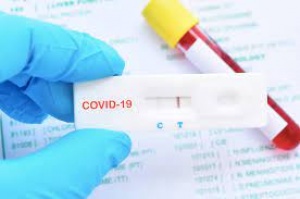The different types of covid tests explained

If you suspect you have coronavirus, or you’re aiming to be prepared (as you should), it can be helpful to know about the different Covid-19 tests available. Taking a test for the virus will involve taking a swab of the tonsils and inside of your nose. There are various tests open to the public and some private tests that you can take too.
NHS Tests
For most people in the UK, an NHS test is the most viable option, with the prime reason being that it is free of charge. However, with this said, there are two types of tests - one for those with symptoms and one for those with no symptoms. Because some people infected with Covid-19 can be asymptomatic, you may need to take a test even if you don’t have any symptoms. You can use the NHS Track and Trace application to help you identify where you might have come into contact with someone with coronavirus.
Polymerase chain reaction tests
PCR Tests are taken to check for the genetic material of the virus itself. The sample is examined at a laboratory and is highly accurate.
Lateral flow device (LFD) tests
These tests detect proteins in samples known as ‘antigens,’ which are produced by the virus. Results from LFD tests can be given in just 30 minutes.
Private tests
Rapid tests can also be obtained from a private company such as Medicspot. If you need results quickly if you are travelling, for example, we recommend using a private Covid test provider.
If you have coronavirus symptoms:
If you have any symptoms of coronavirus, you must book a test as soon as possible. If you have already downloaded the Track and Trace application, you can book a coronavirus test using your mobile device. If you’re unsure of what symptoms are indicative are coronavirus, here they are:
● A high temperature
● A new persistent cough
● Loss of or change to smell and taste.
No matter how mild your symptoms may be, it is essential to self-isolate for 10 days as set out by government guidelines. Once you have received your test results, it is crucial to follow the instructions surrounding self-isolation that you are given.
If you do not have symptoms:
Approximately 1 in 3 people will carry coronavirus with no symptoms whatsoever. If you suspect that you have been in contact with someone with the virus, it is vital to get tested even if you’re asymptomatic. You can choose to get a private test or book for a test via the NHS. If you test positive without symptoms, it is essential that you follow the self-isolation rules.
Antibody tests
Some people may have had the virus before without any symptoms, which means they’d have Covid antibodies in their system. Using an antibody test, it is possible to be tested to see if you have contracted coronavirus in the past. However, they are being used exclusively for certain patients by the NHS.
If you wish to book an antibody test, you will need to pay for and book one privately. If you receive a positive test result, this means that you have been infected with the virus in the past. As it stands, it is not entirely clear whether if you have been infected in the past means that you are immune to the virus.
Therefore, everybody must continue to follow the government’s guidance on social distancing, wearing masks, and leaving homes for non-essential reasons.
Travelling and testing
For those who are due to take a business trip during the pandemic, it is good to understand the different types of tests you should take. Before you are able to book your travel and accommodation, you will need to obtain a ‘Fit to Fly’ certificate.
Your certificate must be presented to travel abroad, and during your trip, you may have to take a test if symptoms begin. Even if you haven’t got symptoms, but you suspect you have been in contact with someone that has, it’s essential to take a test.
When you return to the UK, by law, you will need to self-isolate for ten days. However, there is a new type of test, known as Test to Release, which may enable you to reduce this period. You can take the test on day five, and if your result is negative, you will be able to end your quarantine.
Which Covid test to take?
If you’re unsure of which test you should take, you can find information on the NHS website, which will help you determine the best test for you. Since there are different types of tests, not every test may be suitable for your situation.

